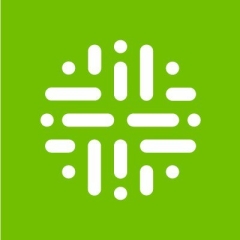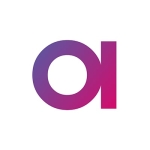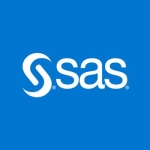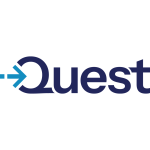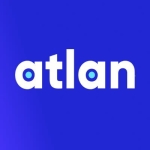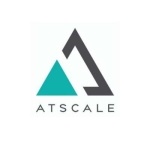What is our primary use case?
We're a very large pharmaceutical organization so it's difficult to quantify exactly how many users are using Collibra.
Within our organization, there is a data governance team that we had set up. I am the person in charge of that team. While working on the data governance processes, we thought of leveraging Collibra for things like data dictionaries, developing data lineage, ensuring that business artifacts like KPI catalogs and board catalogs can be built within Collibra itself.
How has it helped my organization?
This solution has done a lot for our organization and the trust amongst the data that we've been using has definitely improved. Earlier, these things were happening in silos, there were people who were doing manual documentation. Now, things are centrally available on Collibra, so it is more of a centralized platform. People are now able to track what is happening in the background of the data that they are using. Essentially, it has provided us with more trust and transparency — this is the real benefit that we've got out of Collibra.
Also, connecting the dots — things that used to be done in silos, now we have a centralized platform. Every team is aligned with what others are doing. It is not as if I am reporting a KPI, which has an "A" definition and somebody else is reporting a KPI with a "B" definition. When things are consolidated from a country level or a regional level and you're trying to present it to the leadership team, then there is a different picture to it. You're not using consistent calculations and definitions. This ability has been really effective for our organization.
It's a one-stop solution for all of our queries related to data that we are leveraging for our reporting. Pharma is totally dependent on what people are turning out as a report and what analysis or analytics they can derive out of it. From there, leadership accordingly makes a decision. It gives us more confidence in having a go-to platform that acts as a one-stop-shop solution for all of our queries.
What is most valuable?
Due to technological advancement and data becoming more critical for all reporting and analytics purposes, we are no longer restricted to primitive tools like Excel, etc. Earlier, we were leveraging these tools because we used to source data directly from data sources, but now, things have moved to the Azure platform and we have much more freedom in the cloud.
It's now really important for technical people to have some kind of lineage for these data sources because currently, we are not just leveraging data from the source and reporting it somewhere. We have thousands of reports with some transformation that occurs in between. Data is moving from one layer to another — all types, including raw, curated, and rich.
When our technical team works on it and our business demands new modifications, it becomes difficult for them to track that lineage and what impact it's going to have on the upstream and downstream system. This is one functionality of Collibra that we have leveraged extensively.
We are in the process of migrating all our data sources towards the data lake — some has already been done and more is on the way. We want to connect all of our reports, which are either based on ClickView, Tableau, or PBA, directly to Collibra, as our data platform. If a business user wants to track down a KPI in a report to the rawest data from which we are sourcing it, there are a number of layers and transformations happening in between.
It is important for business users to track what is happening in the background. Are we leveraging the right thing? Are we applying the right kind of transformation or the right business-logic to arrive at a certain KPI? At the same time, the IT team needs to be able to know what kind of lineages there are. For example, If I make a change to one of these things, what impact will it have on the backend? This is one of the powerful functions of Collibra which we as an organization think is really useful — as an organization, we have been reaping the benefits thanks to this solution.
What needs improvement?
I am a business person — I am a team leader. My duty is to ensure that the data governance processes are set up; that's how I started to use Collibra. There are certain limitations I have observed in Collibra. With regards to our data lake, Collibra doesn't give us direct connectivity to the Azure Data Lake. We have to establish data lineages. We have to browse those files manually and then connect them via Collibra — that's how data dictionaries get published. Overall, it's quite a manual type of process which needs a lot of human intervention.
I've been hearing that tools like Talent are going to be available soon, which we hope to leverage in the near future. Talent is similar to other ETL or Informatica-type tools. It directly connects to the source system, captures all the transformation tools, and provides you with a spreadsheet that talks about data lineage, which can be fed into Collibra. If this functionality could be improved, it would be a great time-saving solution. It would require less effort and it would be a more automated kind of system, less dependent on human operation, which means that it would be less prone to errors as well.
We create and issue the management of workflows with Collibra. In regards to workflows, I find that they can be made very simple. For example, a request goes directly to the person who is in charge of that particular asset and some simpler workflows can be assigned to it. Recently, I find that the default process of issue management in Collibra is really complex — It wasn't really helpful to us.
Buyer's Guide
Collibra Governance
October 2025
Learn what your peers think about Collibra Governance. Get advice and tips from experienced pros sharing their opinions. Updated: October 2025.
871,688 professionals have used our research since 2012.
For how long have I used the solution?
I have been using Collibra Governance for one and a half years.
What do I think about the stability of the solution?
If deployed correctly and leveraged properly by the people, if the commercialization of the product within your organization, post-deployment, is good and you're able to transfer that value to people, then this solution definitely has huge power. In terms of data governance, as I mentioned, it can be a one-stop solution for all of your data governance needs.
If commercialization, onboarding, and value from Collibra are conveyed properly to the teams, then definitely it's a powerful data governance tool.
Which solution did I use previously and why did I switch?
No. Things were happening in silos. Everybody had their own way of doing data governance. There wasn't any connection or central platform to do that. Everybody was using their own method, platform, files, etc.
How was the initial setup?
We have one person from our leadership team who has experience in data governance — 20 years of experience. Similarly, we had certain technical team members as well. The initial setup was a collaborative effort. Overall, I found the process to be a little complex.
You actually need to get into a lot of theory to be able to understand the backend of Collibra and then be in a position to be able to implement it. Initially, it's a little complex but now that I've spent one and a half years working on it, I find it a little easier, but at the time of initiation, we found it to be a little complex.
Deployment took us roughly nine to ten months.
What about the implementation team?
Our data governance lead oversaw the initial deployment. In my team, there were around five team members who were supporting us through deployment. There were two technical members from the same organization that I worked for who were actually involved in the technical assessment. Then there were onshore business people, too. This was all new to our company — we just made decisions and then we started to go ahead with them.
There was one expert from Collibra that our organization has partnered with because it was a new thing for us. That person actually acted as a guide and mentor, leading workshops and assessments — showing us what should go into Collibra. In a nutshell, these were all the people who were involved.
From a technical perspective, maintenance is required after deployment. We have a dedicated team who looks after this, we don't have to do anything. From an operation perspective, for the maintenance of the asset, you have to ensure that your information is real-time and updated on a regular basis. You cannot just feed this information once and then never look at it — in the data world, things keep on changing. You need to ensure that those dynamics are being catered to. From an operational perspective, yes, there are monthly processes in place that are there to ensure that whatever we have posted on Collibra is up to date and relevant.
From a technical perspective, I cannot contribute much because there is a dedicated team that makes all of the decisions. If we are upgrading Collibra, they are the ones who get the notification, they work with the team and then they agree on the next steps and then we just get notified that new features are going to be available.
What's my experience with pricing, setup cost, and licensing?
I was not involved in the licensing of this solution.
Which other solutions did I evaluate?
We evaluated the pros and cons of another tool (I forget the name of it). From a forward-looking approach and long-term perspective, I think Collibra is far more powerful than the other tool.
What other advice do I have?
Before you deploy or implement Collibra, just ensure that you have certain use cases that really qualify for leveraging Collibra. Assessment and evaluation are really important, first. Benefit analysis is the most important key.
What are the transformational changes that Collibra is going to bring? If it's going to improve your ROI by deploying it, then migrate over to it; just don't do it because everyone else is doing it — that's not a good enough reason.
There are certain tools out there that can analyze data and generate reports with a few simple clicks. Collibra doesn't work like that until you have the ground knowledge of the metamodel — how the backend works and how your assets should be categorized. You cannot expect to directly deploy Collibra. You need certain experts in that area who do extensive research and understand the backend of Collibra, only then can you proceed with it. Once you are pro with it, it becomes much easier, but initially, it does require some research and hard work.
From what I have leveraged out of Collibra thus far, on a scale from one to ten, I would give it a rating of seven.
Which deployment model are you using for this solution?
Public Cloud
Disclosure: My company does not have a business relationship with this vendor other than being a customer.

